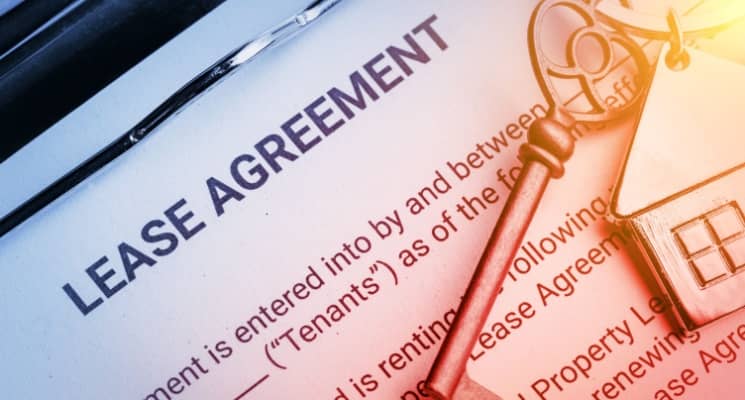When renting a home in Dubai, tenants need to consider several important factors that can affect their overall experience. This may include negotiating the rent, managing local moving, and settling in. The processes of moving may be simpler as you can always get assistance from the right movers in Dubai. However, negotiating the rent, and dealing with your landlord can be a bit more challenging. This blog details how to navigate those situations.
Phase 1: Research and Preparation
1. Research Current Rental Trends in Your Area
With the right information, you can build a solid foundation for a successful negotiation. The first step in that process is to learn about Dubai’s market trends. To do that, you should do the following:
- Check online real estate platforms or visit agents to get important information, and gauge average rental prices in your area. This can help you understand if your current rent aligns with market standards.
- Compare similar properties with lower rents. This can strengthen your argument and demonstrate that the amount you are suggesting is reasonable.
2. Use the Dubai Land Department’s Smart Rental Index
The DLD offers a smart rental index, a great tool for understanding fair rental values for your property type and location. Use this index for comparison. You can check out our blog for more information on the Smart Rental Index.
3. Know Your Rights as a Tenant
It is crucial to be aware of your legal rights when negotiating rent in Dubai. To begin with, you should familiarize yourself with the rules and regulations set by RERA – Real Estate Regulatory Authority – under the Dubai Land Department to regulate the real estate market and set standards on matters like rental increases.
To further support tenants, there is the RERA Rental Increase Calculator – a valuable tool that can help you verify whether the proposed rent increase by your landlord is within the legal limits.
By leveraging all these resources, you can confidently address any unreasonable demands and negotiate better.
4. Demonstrate Your Reliability
Once you are equipped with all the necessary knowledge, it is time to make a good impression on your landlord. Highlight your reliability by guaranteeing the following:
- On-Time Payments: Highlight your history of punctual rent payments. A landlord’s peace of mind is invaluable, and reliability strengthens your case.
- Property Care: Emphasize how well you’ve maintained the property, saving the landlord potential repair costs.
5. Organize Supporting Documents
Prepare documents that validate your claims, such as:
- Comparable rental prices in the area.
- Evidence of your reliability as a tenant (e.g., payment receipts and maintenance records).
Doing your homework and being organized will present a strong case to the landlord, hence, increasing the probability of closing the deal on desirable terms.
Phase 2: Timing & Strategic Negotiation
When and how you negotiate can significantly impact the outcome.
1. Initiate Negotiations
- Before Lease Renewal: Start discussions several months before your lease ends. This gives you more time to explore alternatives and reduces the pressure on both parties.
- During Off-Peak Seasons: Rental demand is typically lower during summer, giving you an advantage. With many expats moving in and out of Dubai, summer months often result in an oversupply of vacant units.
Highlighting favorable market conditions, such as an oversupply of rental properties, can further strengthen your position.
2. Be Polite and Professional
Maintain a calm and respectful tone during discussions. A cooperative attitude often yields better results than a confrontational approach.
3. Highlight Mutual Benefits
Stress the cost and inconvenience of finding a new tenant. For instance, filling a vacancy can take weeks, during which landlords lose income. Furthermore, emphasize your value as a reliable, low-risk tenant. Point out how a stable tenancy ensures steady cash flow and reduces administrative hassles.
By framing the discussion around benefits for both parties, you are more likely to achieve a favorable outcome.
Phase 3: Be Ready to Walk Away
1. Explore Alternatives
Research other rental options in your area. Use platforms like Bayut to compare listings and identify properties offering better value. Make sure you compare facilities, locations, and pricing to ensure you are getting the best.
2. Stay Firm
If your landlord refuses reasonable terms, be prepared to seek a better deal elsewhere. Knowing your options gives you leverage. So always have a backup plan.
Phase 4: Seal the Deal
1. Finalize the Agreement
Once you have reached an agreement, it is critical to make sure everything is formally documented.
- Update the Lease: Ensure all new terms are included in the contract to avoid misunderstandings.
- Sign the Agreement: Both parties should sign the updated lease to formalize the arrangement. Double-check the document for accuracy before signing. Keep copies of the agreement for future reference to avoid disputes.
2. Stay Informed
The Dubai rental market is dynamic, so staying updated ensures you are always prepared for future negotiations.
Conclusion
Negotiating rent in Dubai becomes much easier when you’re well prepared and understand the market. If you’re new to the city, these tips for expats when renting a home in Dubai can help you avoid common pitfalls, while reviewing the right questions to ask when renting and moving in Dubai ensures there are no surprises. Keeping an eye on market trends, such as why moving in Dubai has become easier due to more supply and lower rents, can strengthen your negotiation position. It is also worth considering long-term plans by understanding whether you should buy or rent in Dubai.
With knowledge of market insights, your rights, and a clear strategy, you can improve your chances of securing a fair rental agreement. Once the rental terms are agreed, don’t forget to prepare properly by informing your movers using this guide on what to tell your Dubai local movers before your move. As for the process of moving to your new rental, you can visit ServiceMarket to book professional and affordable packers and movers Dubai.







